People are the Mission
We believe that our greatest resource is our people. We want to catalyze our people to partner with local organizations to serve the city and impact it with the Gospel.
Philosophy
In local outreach & community ministry, this means that we prioritize both demonstrating the Gospel in deed and proclaiming the Gospel in word. Our initiatives and projects are designed to demonstrate God’s love as a crucial part of the message, but they are also designed to build relationships with people who are far from God so He can draw them to himself.
This is crucially important: local outreach is not our public relations project. It’s not our way of creating goodwill in the community or forging partnerships with the city, though of course we want both of those things! At the core, local outreach is about taking the Gospel to the people God commanded us to go to (everyone) who live in places we don’t (homeless shelters, prisons, etc). If we leave the proclamation up to another ministry, we’ve gutted our ministry of God’s power for transformation in our city and opened ourselves to doing more harm than good.
If we avoid proclamation, we’re leaving it up to people to infer the Gospel from our actions. That’s just not how the Bible teaches us that people will believe in God. Paul says in Romans 10, “Faith comes by hearing, and hearing by the word of Christ.“ Big, bold deeds of love and service certainly cause people to ask questions about God, but they don’t provide answers.The answers to those questions are only found in the word of God.
You could think of local outreach projects as platforms that allow you to cross paths with people you otherwise might never meet. If we believe that God created every person in our city to worship him and our lives don’t normally intersect, then we’ve got to figure out how to go to them. Often the most natural way to do this is by working together on a project that addresses a felt need in our community.
The value of a local outreach program is directly related to the quality of relationships that result from it. The “one-and-done” projects are rarely worth the resources invested in them because development (materially and spiritually) is a process, not a product. That’s why we give very little support to projects and programs that don’t have a high relational component to them.
Valuing people over projects doesn’t just require intentionality in planning and selecting projects – it takes initiative from the volunteers participating in the projects. If a project gives us initial steps toward a relationship, we’ve got to proactively look for the next step toward friendship.